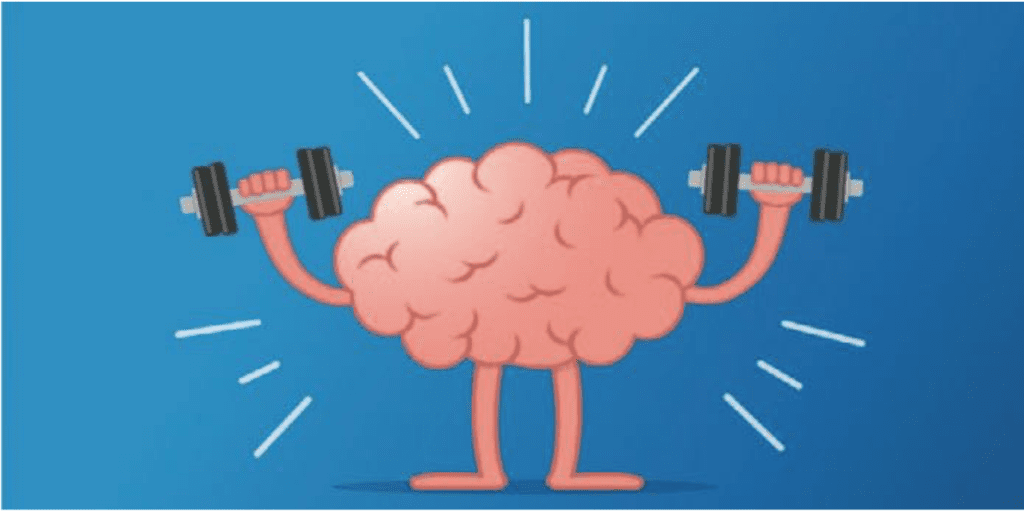Steve Jobs once said, “The storyteller sets the vision, values and agenda of an entire generation to come”. I hope this story can support you, the CMAE member, with some vision and values for your mental well-being today and in the future. Dr Ian Peek.

Throughout my career as a coach, I have felt our performance is a holistic effort. Simply put, whether you are a tennis player or business manager, our performance results from the meeting of our physical (e.g. fitness), mental (e.g. ambition) and social (e.g. family) worlds. For example, our work colleagues’ actions and words (i.e. our social world) can strongly impact how we view ourselves and our ability (our psychology).
In recent years, my study into the mental health of world-class-performers has convinced me how valuable it is for highperfomers, like club managers, to have regular access to psycho- logical and social support. This type of support helps them produce work of high-value while staying in a mentally‚ safe-space. This belief stems from my practical and research experiences. My 2022 PhD research looked at the careers of 16 successful PGA European Tour golfers.
My interview findings with the 16 men would stun me. I would learn how eight of them experienced prolonged mental health challenges. That is, 50% of successful professional golfers suffered from prolonged anxiety or depression during or after their career. Two of them briefly considered suicide, while four of them continue to struggle with their mental health today. These were men who had performed to the very highest levels around the globe. These were men I had admired on TV. My findings forced me to reconsider my work as a performance coach. It has shifted my client-support from “how will you reach your goals?” to “how can we achieve high-performance and be mentally-safe?”. Because without mental ‘safety’ long-term success cannot happen. Delivering high-performance, as managers do, comes with a price. That price can be physical (e.g., poor health), social (e.g. family issues) or psychological (e.g. anxiety or depression).
So what story do I want to tell you? Having observed and worked alongside club managers for over 30 years, I consider them high-performers. Like tour players, they complete complicated blocks of work within a certain time schedule and in doing so, must satisfy not only themselves but the influencers around them (e.g., club directors and club members). Their success depends on good team work but the ‘hard yards’ are often very lonely. There is pressure to perform and meet the expectations of demanding others. With tour players, these ‚demanding others‘ are often family members, who have come to expect a certain lifestyle, which can only be financed by dad /husband’s continued high- performance. The high-performer can feel they must perform to maintain their status in the family. The eight sufferers in my PhD study became anxious or depresssed as their careers progressed; they did not bring these conditions with them into their careers.
One player became overwhelmed with life while at the top of his career, while the seven other sufferers became anxious and depressed after career set- backs. Injury or poor choices were often the starting point for their downward career and mental spiral. Their loss of form impacted their finances and with their lack of success, previous ‚friends‘ suddenly went missing. Home life became a challenge as they felt they were of less value. They lost their identity. And worst of all seven of the eight suffered in silence during their careers. Because they felt shame, most carried their mental demons alone for a number of years. They did not seek help because they feared they would be seen as weak. As one of the players ‘Lawrence’ said of his dark times:
“The situation I was in mentally, you didn’t want to reach out to anybody like that, because you were nearly telling them, nearly saying to them that you feel like a failure.”
And with that silence, the seven could find no strategies to get back on-track. Only after they had left their workplace (the DP World Tour) did they seek out support.
Interestingly, the one player who did seek out professional support during his career was able to resurrect his mental-health and previous successes.
And the summary of this story? Having researched but also personally recovered from high performance mental-health challenges, I am now sure of the following:
- Mental health-challenges can appear through the demands of ‘high-performance’.
- Mental health-challenges are not a weakness of character. They can happen to anyone. I was 53 when I first encountered anxiety. In hindsight, I am pleased to have gone through that experience because it has helped me better understand mental health.
- Keeping mental-challenges a secret will probably make them worse for the sufferer.
- Before mental-health challenges occur, regular support with the right listener can empower and keep the high-performer on-track.
- Talking to a ‘good listener’ about our fears is a good way to improve mood. A good listener will listen, they do not strive to offer solutions.
As maybe the greatest storyteller of them all (Steve Jobs) once said: “I’ve never found anybody that didn’t want to help me if I asked them for help”.
If you are struggling, please do reach out to a trusted other. It might just be the start of better days.

